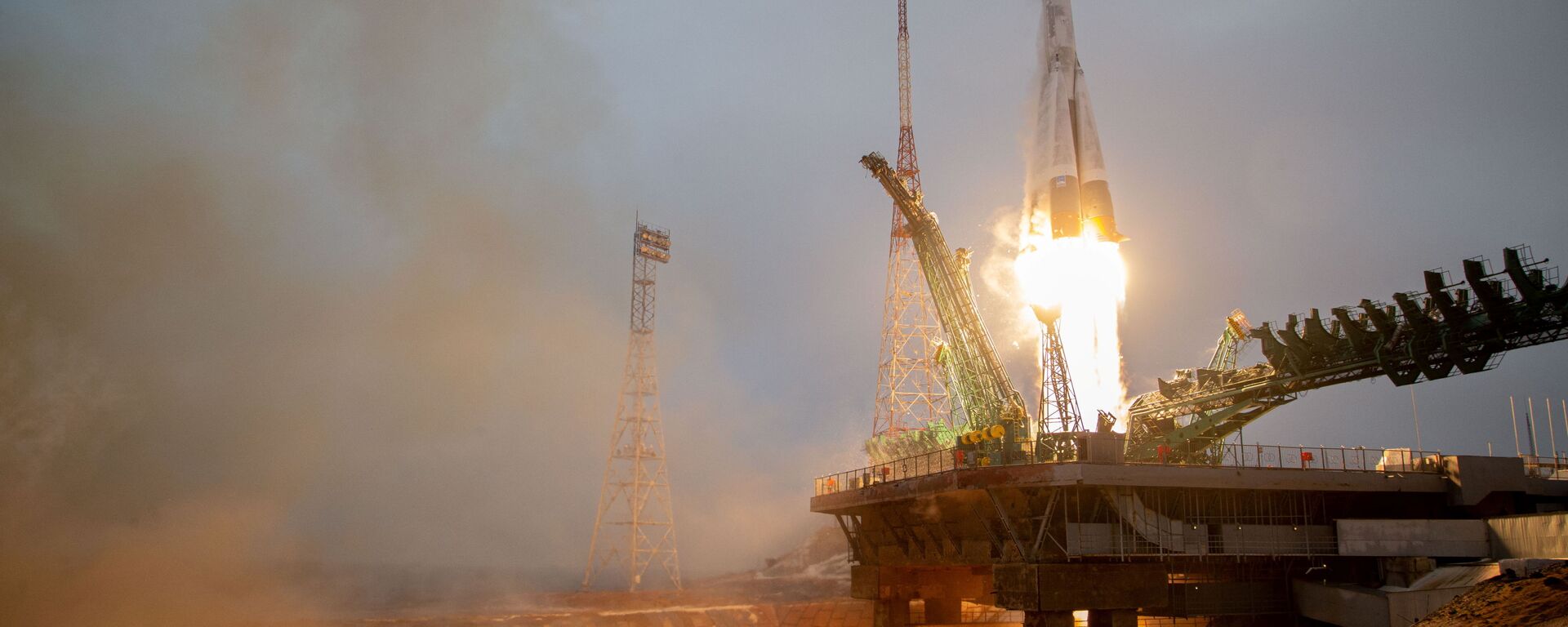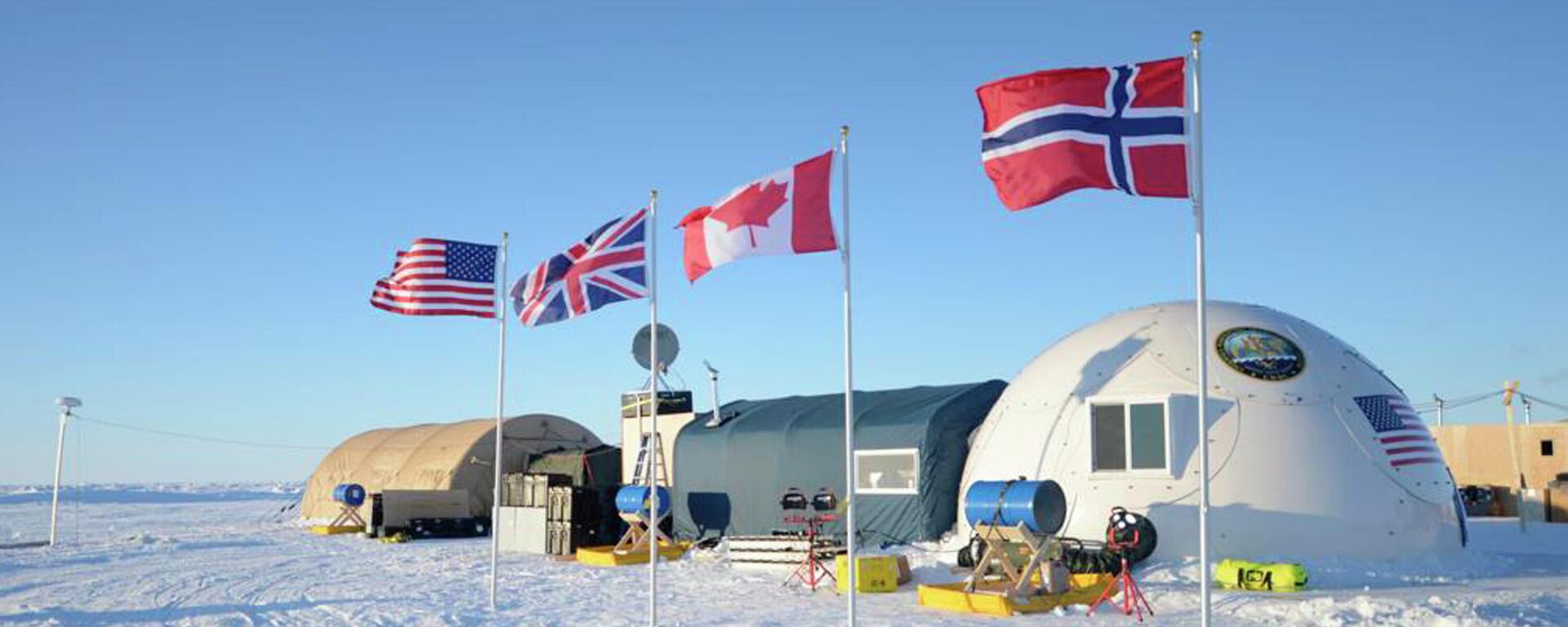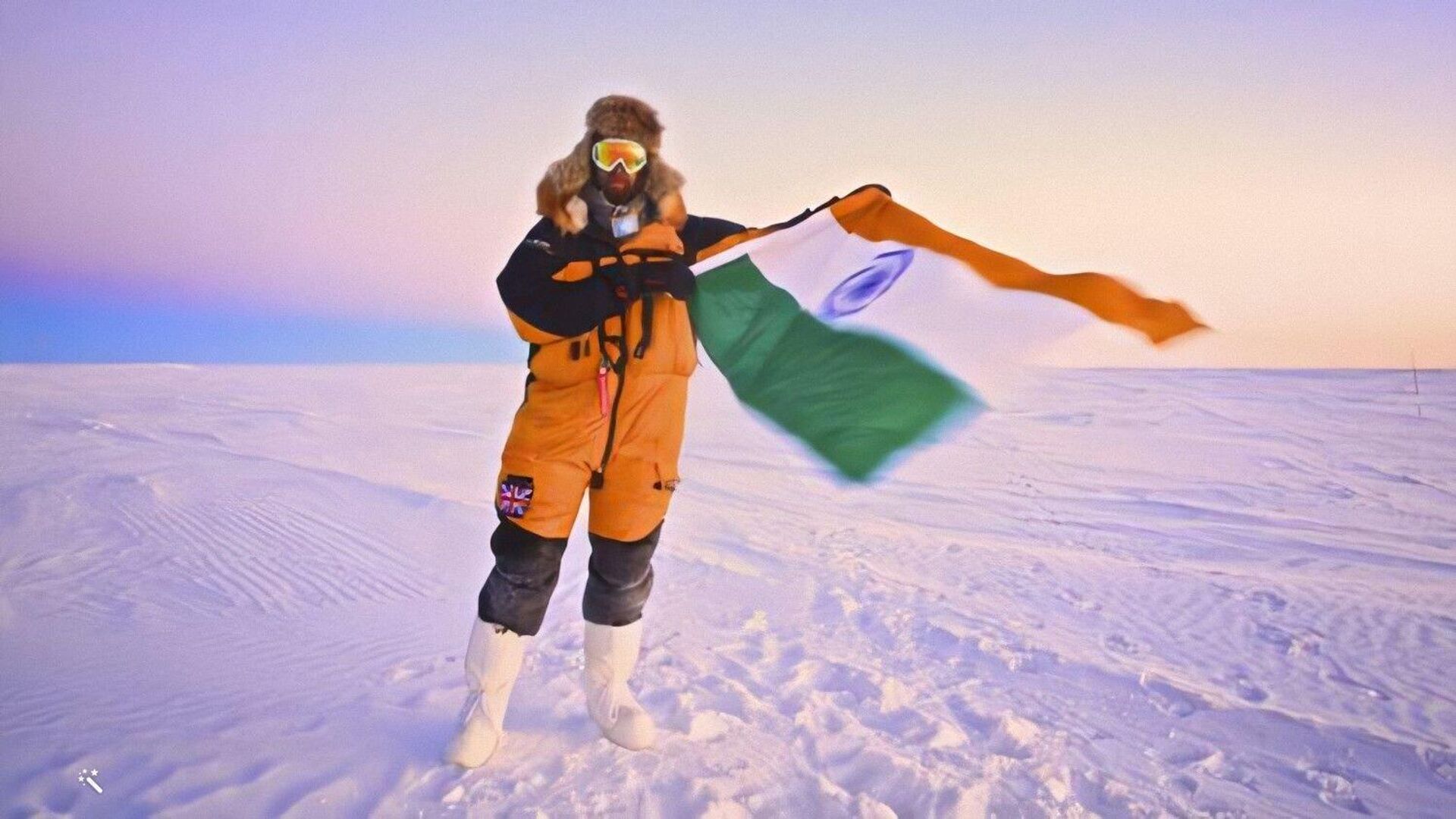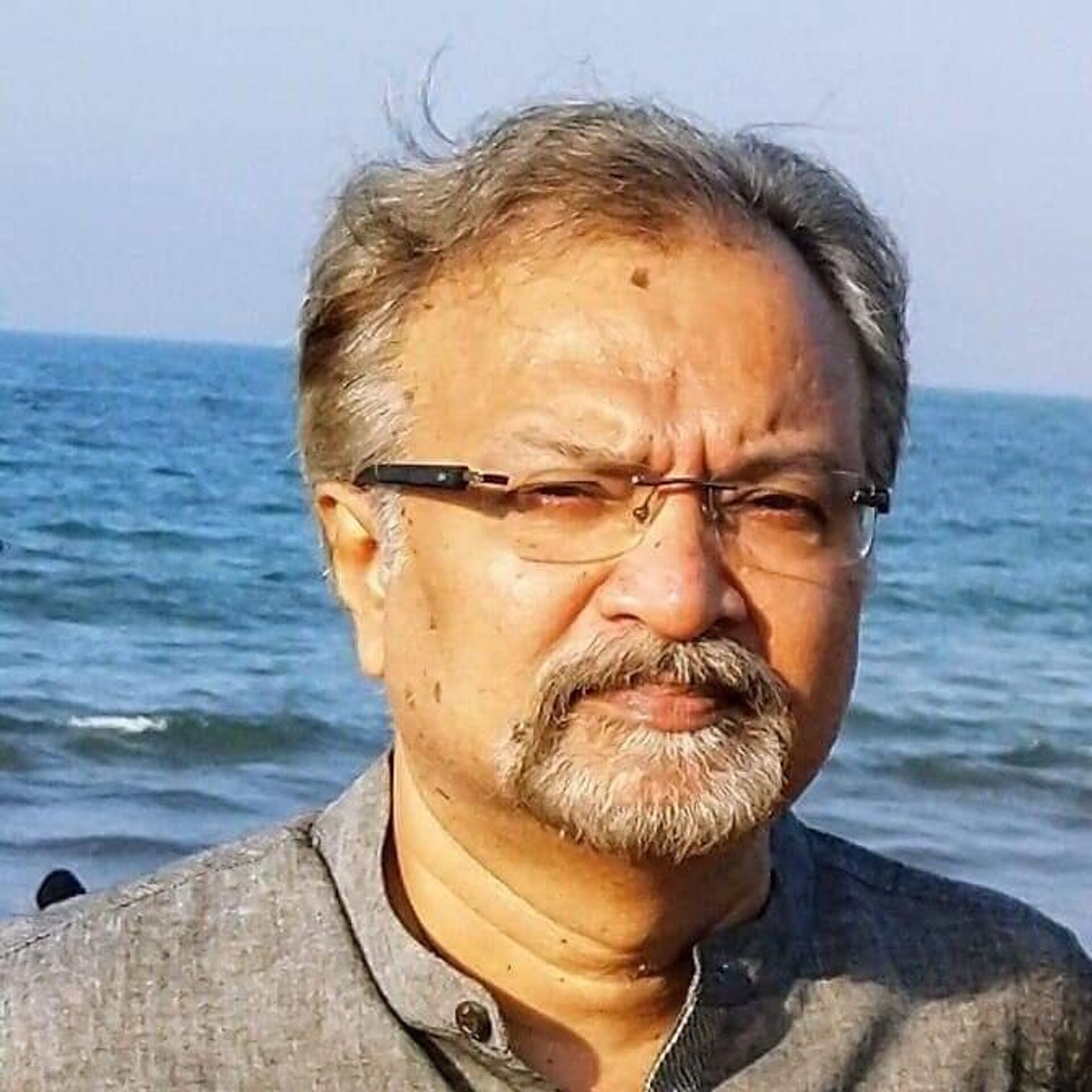https://sputnikglobe.com/20220901/india-must-take-both-russia--china-into-confidence-to-boost-arctic-presence-says-expert-1100255720.html
India Must Take Both Russia & China Into 'Confidence' to Boost Arctic Presence, Says Expert
India Must Take Both Russia & China Into 'Confidence' to Boost Arctic Presence, Says Expert
Sputnik International
India’s Arctic Policy, launched this March, rests on six pillars, including strengthening scientific research and cooperation, climate and environmental... 01.09.2022, Sputnik International
2022-09-01T12:04+0000
2022-09-01T12:04+0000
2022-09-04T07:34+0000
arctic
narendra modi
russia
china
vladivostok
eastern economic forum 2022
https://cdn1.img.sputnikglobe.com/img/07e6/09/01/1100267821_0:0:1501:844_1920x0_80_0_0_cbc7a8cf356653523cf6d924d6bd9865.jpg
Professor KM Seethi is a senior fellow at the Indian Council of Social Science Research (ICSSR) and an academic advisor to the International Centre for Polar Studies (ICPS), based at the Mahatma Gandhi University in the state of Kerala.Seethi spoke to Sputnik before taking part in the ‘Arctic segment’ of the Seventh Eastern Economic Forum (EEF), due to take place in Vladivostok, a port city on Russia's Pacific coast, between 5 and 8 September.Sputnik: What is the geopolitical significance of the Arctic region for India?Seethi: Though the Arctic region is more than 9,000 kilometers away, India sees itself as a significant player in the context of its deeper engagements in the polar regions, particularly with the major Arctic states.In fact, India’s Arctic engagements started a century ago with the signing of the Svalbard Treaty in 1920. But its deeper activities in the region began in 2007 with the commencement of its first scientific expedition in the Arctic, followed by setting up a permanent International Arctic research base Himadri at Ny-Ålesund, Svalbard, in 2008.In 2014, India also put in place a multi-sensor moored observatory IndArc in Kongsfjorden. In 2016, India also established its northernmost Atmospheric laboratory in Gruvebadet. So far, India has conducted 13 expeditions in the Arctic and presently has 23 ongoing key scientific projects.India is a member of several multilateral bodies associated with the Arctic, such as the International Arctic Science Committee, Ny-Ålesund Science Managers Committee, the University of the Arctic, and the Asian Forum for Polar Sciences. The country's engagements further deepened in 2013 when it became an Observer State in the Arctic Council and had its status renewed in 2019.Sputnik: Why is Russia crucial for India if it wants to step up its presence in the Arctic region?Seethi: India considers Russia a significant player in a larger framework of its global partnership. Obviously, it will be reflected in its Arctic engagements too. There is a historical context of New Delhi’s partnership with Moscow which goes to the days of India’s independence when non-alignment as a foreign policy strategy earned the respect of countries in the socialist bloc. More importantly, Moscow played a much greater role in strengthening India’s public sector at that time and provided much-needed support for defense infrastructure and scientific and technological development.Sputnik: Connectivity is one of the pillars of India’s Arctic Policy launched in March this year. How do you view the progress in enhancing connectivity between India and Russia through the International North South Transit Corridor (INSTC) and the Chennai-Vladivostok shipping route? What are the major obstacles?Seethi: It's very clear from the Arctic Policy that India is committed to exploring the connectivity corridor between the resource-rich Arctic Region and International North-South Transport Corridor. India has already initiated discussions with Russia on cooperation in connectivity via the Northern Sea Route and joint energy projects in the Arctic region.Evidently, India is interested in developing infrastructure, shipping routes, and harnessing minerals in the Arctic region sustainably. The use of the Northern Sea route by India had already figured in some of the meetings held.For example, the joint declaration by Prime Minister Narendra Modi and President Vladimir Putin in 2019 referred to the Chennai (India)-Vladivostok (Russia) maritime corridor which is expected to play a major role. Enhancement of the India-Russia joint trade commitment will definitely diversify India's trade space.The Memorandum of Intent (MoI) shows that both nations are now determined to expand their trade exchanges although COVID-19 and the Ukraine situation introduced some obstacles to the process.Sputnik: The Indian Prime Minister has extended a $1Bln credit line for businesses interested in Russia’s Far-East region, which is also part of the Arctic region. How can Russia benefit from this as far as its own strategic interests are concerned?Seethi: Prime Minister Modi sees this as part of strengthening India’s ‘Act-East’ policy. This gesture is expected to “give new impetus to the development of economic diplomacy,” as Mr Modi indicated in his speech. Certainly, the Far East region of Russia needs a lot of support and help given its geopolitical vulnerabilities. India has shifted its policy regime - from Look East to Act East - obviously keeping in mind what India can do in such resource-deficit regions, without expecting anything in return in economic terms.Sputnik: China has also said that it wants to take an active part in the Arctic region. Should India view Beijing as a competitor or an adversary as far as interests in the Arctic are concerned?Seethi: Yes indeed. India sees China as a competitor in the Arctic with its deeper engagements. It’s not a new thing. New Delhi had concerns when China projected itself as a ‘Near Arctic state’ with its new stakes in developing the ‘Polar Silk Road’. India’s opposition to the Belt Road Initiative is also a part of this concern. New Delhi still fears the ‘String of Pearls’ project of China — whether real or imaginary — and obviously, everything is connected with this. But Russia can play an effective role in bridging the gulf between Beijing and New Delhi.When India has an interest in the Northern Sea route passage because of where it is geographically, it tends to view emerging actors in the region with a broader perspective. This is certainly a challenging task for Indian diplomacy.Sputnik: India is also an observer at the Arctic Council. The working in the group seems to have been affected by the aftermath of the Ukraine conflict. How should India navigate these differences?Seethi: India’s Arctic Policy was brought out at a critical time of uncertainty. That is also the time when Russia officiates the chairmanship of the Arctic Council. Unfortunately, the seven other Arctic states resolved to ‘pause’ the activities of the Council because of the ongoing crisis in Ukraine.Noticeably, India has not only not sided with any of the major alliances, staying non-aligned as it was during the Cold War period, but it has continued to engage with the contending parties while keeping an open mind. This is a critical time for New Delhi also, as it has been engaging western powers on a variety of issues, such as trade and commerce.Obviously, the Ukraine conflict is a flashpoint and its early end is very important for the revival of the council's proceedings, as it cannot be halted for political reasons. However, it remains to be seen whether New Delhi could play any effective role in ending the conflict. India sees this largely as an issue between Russia and Ukraine and it knows its limitations in such a sensitive geopolitical issue.
https://sputnikglobe.com/20211111/indian-navy-presence-in-arctic-could-act-as-a-strategic-counterweight-to-china-analyst-1090622956.html
https://sputnikglobe.com/20220826/stoltenberg-says-nato-interested-in-arctic-as-ice-melts-area-becomes-accessible-1100044507.html
arctic
russia
china
vladivostok
Sputnik International
feedback@sputniknews.com
+74956456601
MIA „Rosiya Segodnya“
2022
News
en_EN
Sputnik International
feedback@sputniknews.com
+74956456601
MIA „Rosiya Segodnya“
Sputnik International
feedback@sputniknews.com
+74956456601
MIA „Rosiya Segodnya“
arctic, narendra modi, russia, china, vladivostok
arctic, narendra modi, russia, china, vladivostok
India Must Take Both Russia & China Into 'Confidence' to Boost Arctic Presence, Says Expert
12:04 GMT 01.09.2022 (Updated: 07:34 GMT 04.09.2022) Exclusive
India’s Arctic Policy, launched this March, rests on six pillars, including strengthening scientific research and cooperation, climate and environmental protection, economic and human development, transportation and connectivity, governance and international cooperation as well as building of national capacity.
Professor KM Seethi is a senior fellow at the Indian Council of Social Science Research (ICSSR) and an academic advisor to the International Centre for Polar Studies (ICPS), based at the Mahatma Gandhi University in the state of Kerala.
Seethi spoke to Sputnik before taking part in the ‘Arctic segment’ of the Seventh Eastern Economic Forum (EEF), due to take place in Vladivostok, a port city on Russia's Pacific coast, between 5 and 8 September.
Sputnik: What is the geopolitical significance of the Arctic region for India?
Seethi: Though the Arctic region is more than 9,000 kilometers away, India sees itself as a significant player in the context of its deeper engagements in the polar regions, particularly with the major Arctic states.
India’s Arctic Policy released this year and the Antarctic Law passed by Parliament a few weeks ago are specific signals that New Delhi is committed to playing a proactive role in the polar regions - with its own claim that India is a ‘Third Pole’ country. Geopolitically, both the Arctic and Antarctic regions have become sensitive with increasing engagements of major powers.
In fact, India’s Arctic engagements started a century ago with the signing of the Svalbard Treaty in 1920. But its deeper activities in the region began in 2007 with the commencement of its first scientific expedition in the Arctic, followed by setting up a permanent International Arctic research base Himadri at Ny-Ålesund, Svalbard, in 2008.
In 2014, India also put in place a multi-sensor moored observatory IndArc in Kongsfjorden.
In 2016, India also established its northernmost Atmospheric laboratory in Gruvebadet. So far, India has conducted 13 expeditions in the Arctic and presently has 23 ongoing key scientific projects.
India is a member of several multilateral bodies associated with the Arctic, such as the International Arctic Science Committee, Ny-Ålesund Science Managers Committee, the University of the Arctic, and the Asian Forum for Polar Sciences.
The country's engagements further deepened in 2013 when it became an Observer State in the Arctic Council and had its status renewed in 2019.
Sputnik: Why is Russia crucial for India if it wants to step up its presence in the Arctic region?
Seethi: India considers Russia a significant player in a larger framework of its global partnership. Obviously, it will be reflected in its Arctic engagements too. There is a historical context of New Delhi’s partnership with Moscow which goes to the days of India’s independence when non-alignment as a foreign policy strategy earned the respect of countries in the socialist bloc.
More importantly, Moscow played a much greater role in strengthening India’s public sector at that time and provided much-needed support for defense infrastructure and scientific and technological development.
Its support in setting up oil and natural gas exploration mechanisms was just as vital. India naturally sees partnership with Russia as crucial in its Arctic engagements. As an Arctic state with considerable stakes in the region, Russia can open up vast opportunities for India’s scientific and commercial interests.
Sputnik: Connectivity is one of the pillars of India’s Arctic Policy launched in March this year. How do you view the progress in enhancing connectivity between India and Russia through the International North South Transit Corridor (INSTC) and the Chennai-Vladivostok shipping route? What are the major obstacles?
Seethi: It's very clear from the Arctic Policy that India is committed to exploring the connectivity corridor between the resource-rich Arctic Region and International North-South Transport Corridor. India has already initiated discussions with Russia on cooperation in connectivity via the Northern Sea Route and joint energy projects in the Arctic region.
Evidently, India is interested in developing infrastructure, shipping routes, and harnessing minerals in the Arctic region sustainably. The use of the Northern Sea route by India had already figured in some of the meetings held.
For example, the joint declaration by Prime Minister Narendra Modi and President Vladimir Putin in 2019 referred to the Chennai (India)-Vladivostok (Russia) maritime corridor which is expected to play a major role. Enhancement of the India-Russia joint trade commitment will definitely diversify India's trade space.
This will also reduce India’s energy dependency on the west Asian nations, Africa, and the US. The proposed Chennai-Vladivostok maritime connectivity was seriously considered at policy level during Prime Minister Narendra Modi's visit to Vladivostok to attend Eastern Economic Forum (EEF).
The Memorandum of Intent (MoI) shows that both nations are now determined to expand their trade exchanges although COVID-19 and the Ukraine situation introduced some obstacles to the process.
Sputnik: The Indian Prime Minister has extended a $1Bln credit line for businesses interested in Russia’s Far-East region, which is also part of the Arctic region. How can Russia benefit from this as far as its own strategic interests are concerned?
Seethi: Prime Minister Modi sees this as part of strengthening India’s ‘Act-East’ policy. This gesture is expected to “give new impetus to the development of economic diplomacy,” as Mr Modi indicated in his speech.
Certainly, the Far East region of Russia needs a lot of support and help given its geopolitical vulnerabilities. India has shifted its policy regime - from Look East to Act East - obviously keeping in mind what India can do in such resource-deficit regions, without expecting anything in return in economic terms.
Sputnik: China has also said that it wants to take an active part in the Arctic region. Should India view Beijing as a competitor or an adversary as far as interests in the Arctic are concerned?
Seethi: Yes indeed. India sees China as a competitor in the Arctic with its deeper engagements. It’s not a new thing. New Delhi had concerns when China projected itself as a ‘
Near Arctic state’ with its new stakes in developing the ‘Polar Silk Road’. India’s opposition to the Belt Road Initiative is also a part of this concern.

11 November 2021, 13:03 GMT
New Delhi still fears the ‘String of Pearls’ project of China — whether real or imaginary — and obviously, everything is connected with this. But Russia can play an effective role in bridging the gulf between Beijing and New Delhi.
When India has an interest in the Northern Sea route passage because of where it is geographically, it tends to view emerging actors in the region with a broader perspective.
India being the third-largest seafaring nation does not want to be lagging behind in the future opportunities in the region. At the same time, India knows that it cannot proceed without taking both Russia and China into its confidence.
This is certainly a challenging task for Indian diplomacy.
Sputnik: India is also an observer at the Arctic Council. The working in the group seems to have been affected by the aftermath of the Ukraine conflict. How should India navigate these differences?
Seethi: India’s Arctic Policy was brought out at a critical time of uncertainty. That is also the time when Russia officiates the chairmanship of the Arctic Council. Unfortunately, the seven other Arctic states resolved to ‘pause’ the activities of the Council because of the ongoing crisis in Ukraine.

26 August 2022, 20:19 GMT
Noticeably, India has not only not sided with any of the major alliances,
staying non-aligned as it was during the Cold War period, but it has continued to engage with the contending parties while keeping an open mind.
This is a critical time for New Delhi also, as it has been engaging western powers on a variety of issues, such as trade and commerce.
Obviously, the Ukraine conflict is a flashpoint and its early end is very important for the revival of the council's proceedings, as it cannot be halted for political reasons. However, it remains to be seen whether New Delhi could play any effective role in ending the conflict.
India sees this largely as an issue between Russia and Ukraine and it knows its limitations in such a sensitive geopolitical issue.







